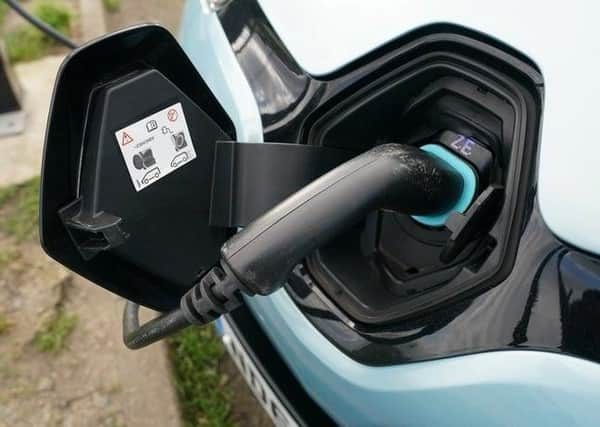Hidden cost of electric cars


Electric vehicles (EVs) are as old as the motor industry, but will unlikely totally replace ‘vapour’ (natural/fossil fuel/hydrogen) internal combustion engines (ICEs) unless through political intervention forcing superior ICEs off the road. Subsidised EVs will soon be taxed - regardless of political party.
EVs put motorists at the mercy of the weather (solar/wind), political ransom (rare-earth mining barons/nations); integrity of and access to national grids (failed EU-Swiss trade talks); availability of unique batteries at rip-off prices and range/power capacity.
Advertisement
Hide AdAdvertisement
Hide AdExcept for the cost of ‘fuel’, EVs still have little economic advantage for they suffer the same handicaps today as 100 years ago: dead weight, capital cost, limited range and recharging. Can you imagine armies mutually cease-firing to recharge their batteries under the mid-day sun?
In 1975 I evaluated the Enfield 8000 car. Though ideologically sound, its limited range and payload was an operational handicap as my employers refused me parking space to recharge at their several sites when on their business! Overall costs were little different to ICEs due to high battery replacement costs that, at £4,000-£7,000 today (unless leased), remains a major disincentive to buying secondhand particularly if a special battery type is needed.
Significant development of commercial EVs was undertaken in Britain in the 1970/80s, with similar conclusions for while EVs remain perfect for short-range ‘roundsmen’ (milk/post) duties, they handicap hauliers on ad hoc routes as the batteries (an extra 200+kg car; 2000+kg lorry) are ‘dead weight’ payloads, increasing delivery costs to consumers. More power/range increases weight, chassis wear and service costs, bigger pot-holes and road damage resulting in ever more ‘man made CO2’ to repair the damage... somewhat defeating the object. Then there are huge environmental costs: whereas 90+% of an ICE is recycled, EV’s lithium batteries and electronics currently have low recycle rates and high man-made CO2 pollution through pyrometallurgy, toxic chemicals, mining and global shipping. We’ll still need oil for petrochemicals for the battery cases.
The solution is simple: clean hydrogen and hybrids, and control ‘man-made global warming’ by stoping breeding!
Advertisement
Hide AdAdvertisement
Hide AdPlease send your letters to [email protected]. Letters must be accompanied by a full name and address. Anonymous letters are never printed. We reserve the right to edit letters for any reason.